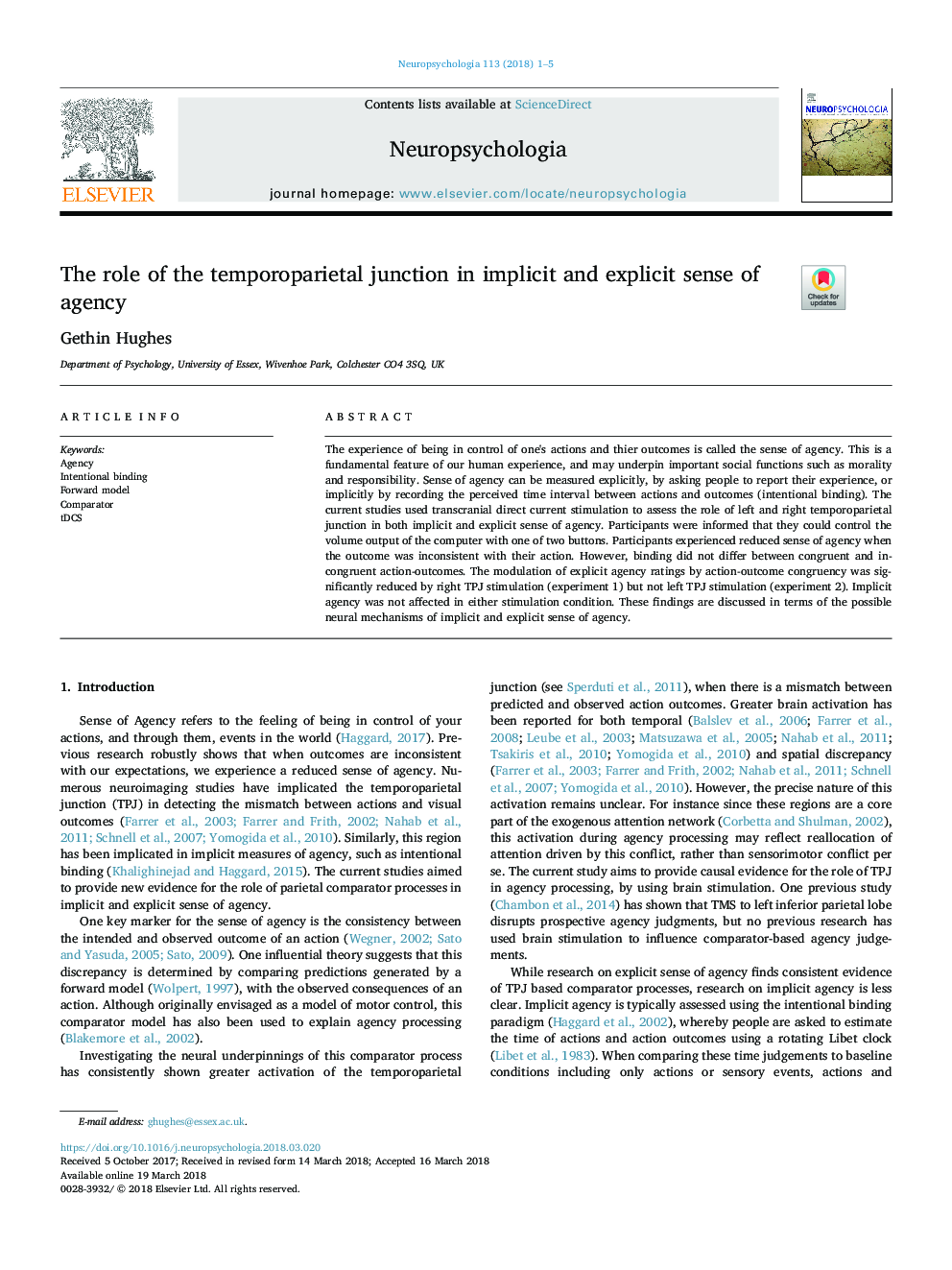| Article ID | Journal | Published Year | Pages | File Type |
|---|---|---|---|---|
| 7317653 | Neuropsychologia | 2018 | 5 Pages |
Abstract
The experience of being in control of one's actions and thier outcomes is called the sense of agency. This is a fundamental feature of our human experience, and may underpin important social functions such as morality and responsibility. Sense of agency can be measured explicitly, by asking people to report their experience, or implicitly by recording the perceived time interval between actions and outcomes (intentional binding). The current studies used transcranial direct current stimulation to assess the role of left and right temporoparietal junction in both implicit and explicit sense of agency. Participants were informed that they could control the volume output of the computer with one of two buttons. Participants experienced reduced sense of agency when the outcome was inconsistent with their action. However, binding did not differ between congruent and incongruent action-outcomes. The modulation of explicit agency ratings by action-outcome congruency was significantly reduced by right TPJ stimulation (experiment 1) but not left TPJ stimulation (experiment 2). Implicit agency was not affected in either stimulation condition. These findings are discussed in terms of the possible neural mechanisms of implicit and explicit sense of agency.
Related Topics
Life Sciences
Neuroscience
Behavioral Neuroscience
Authors
Gethin Hughes,
